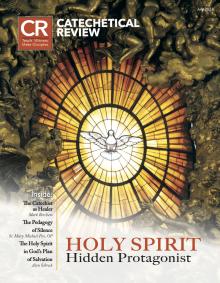Pope St. John Paul II devoted about 30 percent of his Theology of the Body (TOB) Catechesis (TOB 24–64) to extensive reflections on Jesus’s teaching in Matthew 5:27–28 regarding the need to avoid “lust” in the recesses of the human heart. St. John Paul II did not focus so intently on this teaching simply to hammer home the evils of lust. Instead, he saw lust as an acute threat to the divine plan for human love, and that plan for love was always his greatest concern. He repeatedly presents the teaching of Jesus not so much as a condemnation of our lustful hearts but as a call to purity of heart for the sake of purified love (TOB 42–59).
St. John Paul II utilizes St. Paul’s teaching that we must “abstain from unchastity” and “keep” the body “with holiness and reverence” (1 Thes 4:3–5) to emphasize that purity of heart has a “more positive than negative” dimension (TOB 54:1–3). Purity necessarily means being free from pollutants that contaminate the heart, but it should never be misconstrued as prudishness or disdain for the sexuality of the body (TOB 44:5–45:3). Authentic purity is found in a positive orientation of the heart that heightens our sense of the dignity and beauty of human sexuality in ourselves and in others.
This whole outlook on purity corresponds with what St. John Paul II calls the “ethos of redemption” (TOB 51:5) and the “life ‘according to the Spirit’” that make the reality of purified love “a new ability of the human being in whom the gift of the Holy Spirit bears fruit” (TOB 56:1). Instead of being anything we can manufacture for ourselves, true purity is given to us “by the power of Christ himself working in man’s innermost [being] through the Holy Spirit” (TOB 51:3). Through re-creation in Christ, we can be given a supernatural outlook on sexuality and new paradigms for our sexual lives.
This installment of the series presents the TOB teachings on purity of heart and sexual modesty as guideposts on the path of re-creation within the relationship of man and woman. These teachings help us better understand how our attitudes, thoughts, and desires should be impacted by God’s grace; from there, we can formulate a kind of checklist of God’s expectations for our sexual lives.
The rest of this online article is available for current Guild members.
This article is from The Catechetical Review (Online Edition ISSN 2379-6324) and may be copied for catechetical purposes only. It may not be reprinted in another published work without the permission of The Catechetical Review by contacting [email protected]


















